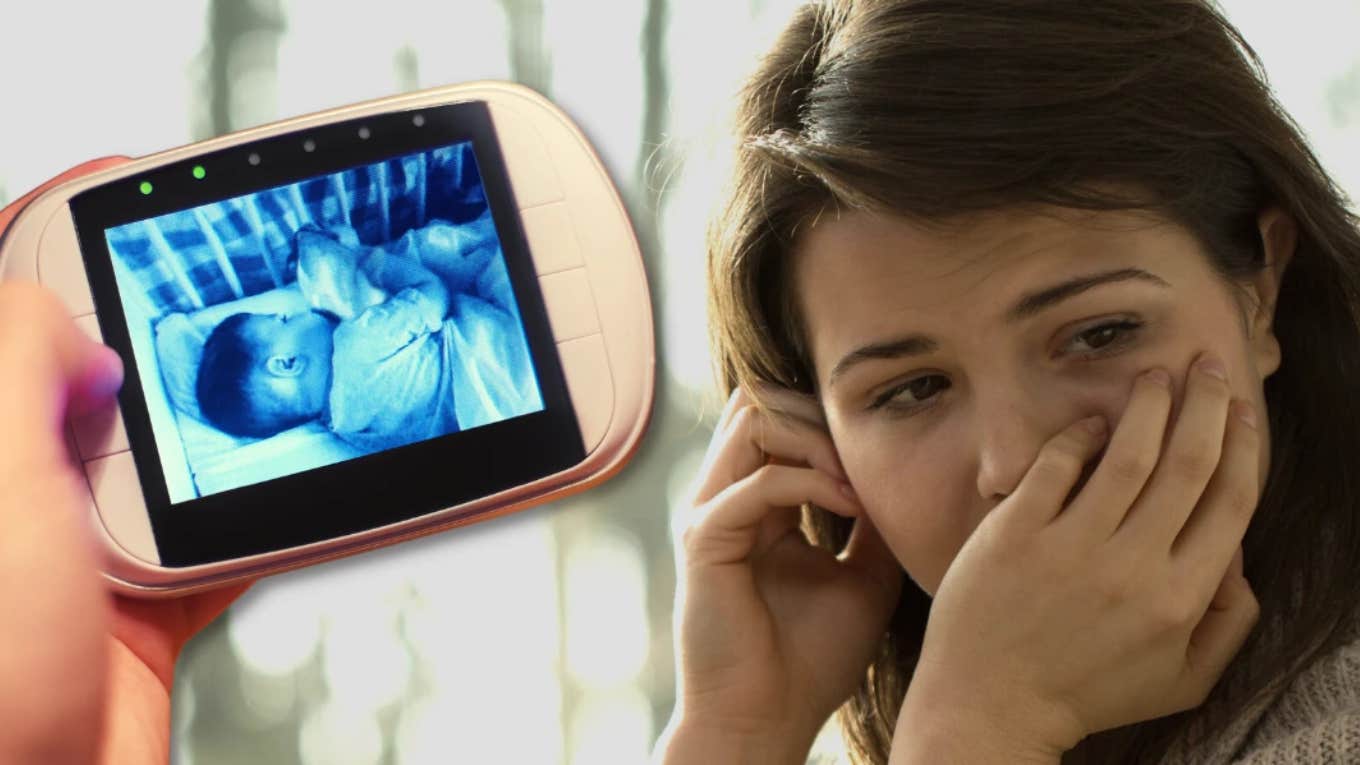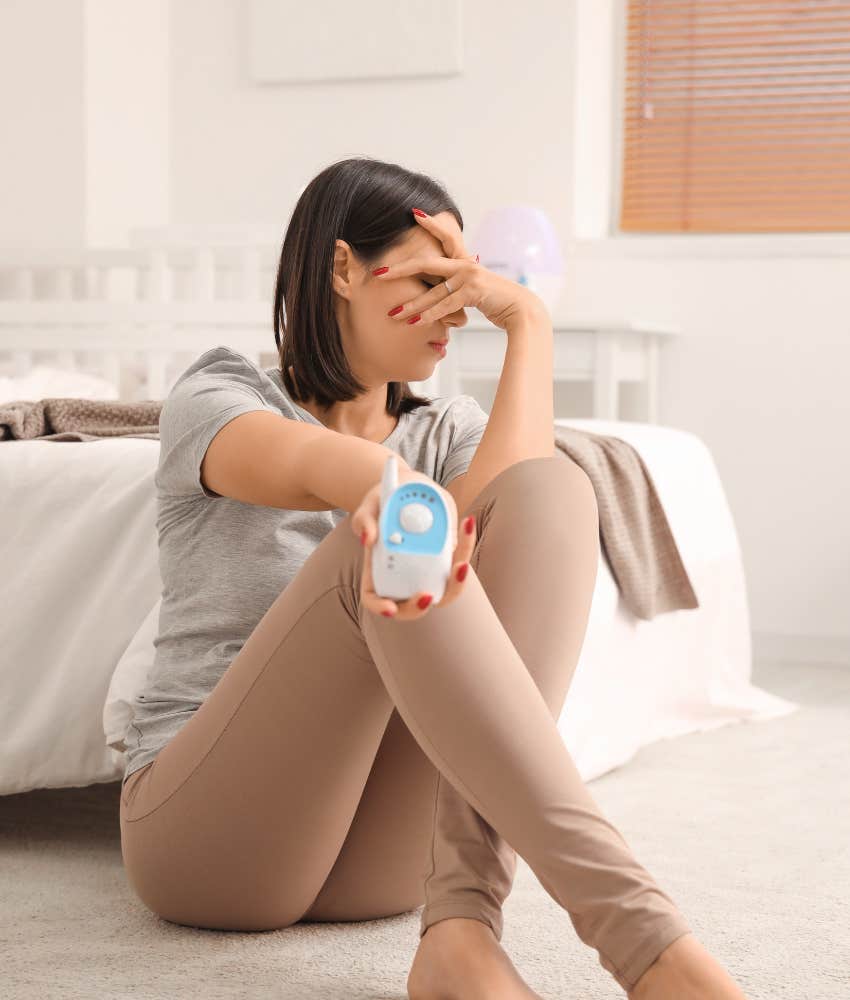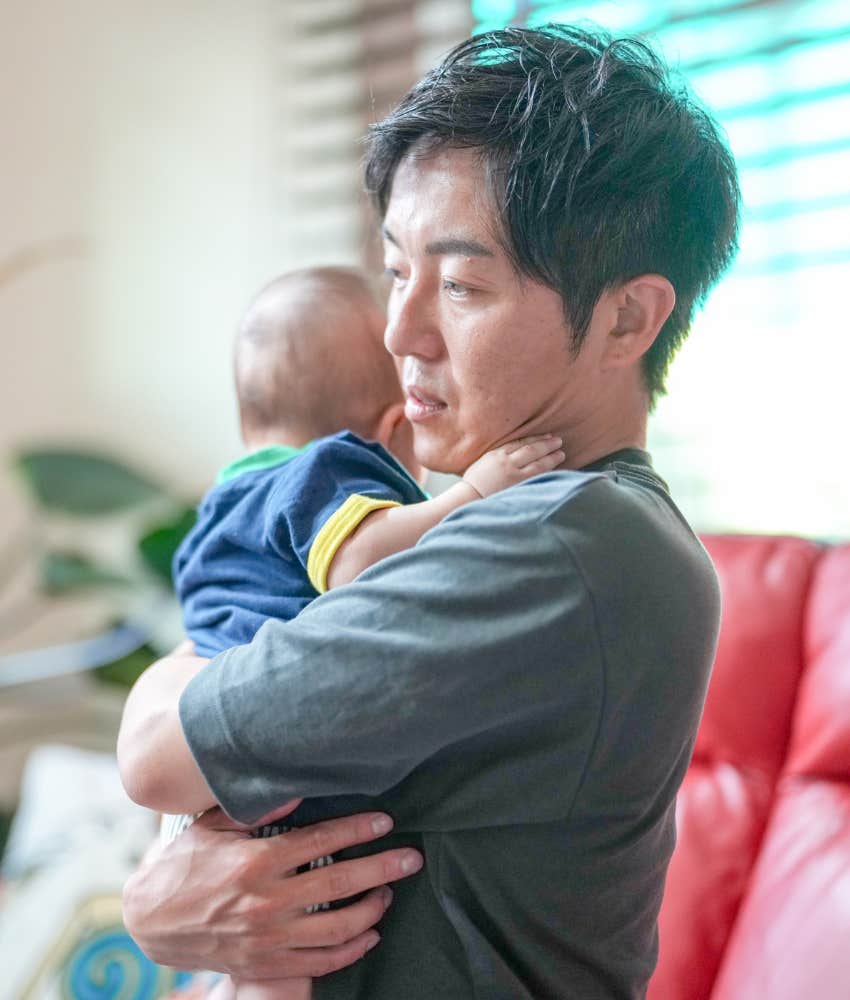Mom Overhears Husband Tell Their Baby 'I Hate You So Much' & Asks What She Should Do
Should this new mom be worried?
 MartinPrescott, KatarzynaBialasiewicz | CanvaPro
MartinPrescott, KatarzynaBialasiewicz | CanvaPro A new mother has been left shocked and disturbed after overhearing the way her husband speaks to their new baby. In a post to Reddit, the mom revealed that she overheard her husband, who she thought was elated to be a first-time dad, basically telling their baby daughter that he hates her.
Being a new parent is, of course, rife with frustrations. The lack of sleep alone is enough to shorten most people's fuses. But what this new mother heard coming out of her husband's mouth over the baby monitor is anything but normal venting.
A new mom overheard her husband saying he hates their baby through the monitor.
 Pixel-Shot | Shutterstock
Pixel-Shot | Shutterstock
As she turned up the volume on the baby monitor, rather than hearing the usual sweet things a father says to his baby, she heard him "basically insulting her." Perhaps "insulting" is putting it mildly.
She heard her husband say, "I hate you so much you have no idea, that’s right you heard me, you little [expletive]." That's disturbing enough, but when her husband returned from the baby's room, "he was completely normal, the sweetest guy."
The new mom thought the baby's father was involved and enthusiastic.
She wrote that ever since she told her husband she was pregnant, he was "over the moon" about their baby girl. He's also been a very active father.
She wrote that "he longs for any opportunity to hold or feed her, he’s the one bathing her in the evening as part of her bedtime routine." So what she heard on their baby monitor that one night was nothing short of shocking. But maybe it's not all that uncommon.
As one commenter sagely noted, "Based on how involved he is and what OP has put in her post, he might just be struggling with the major life change that is having a baby, and sleep deprivation is no joke (I don't have kids but I've been through it as a child and it does things to your mind) either." They added, "If this were a woman, we'd be talking about PPD and recommending help. While he isn't suffering from those physical issues, I think OP's husband might be struggling with the lifestyle change and needs to talk to a therapist."
The mom questioned whether she should be worried about her baby's safety.
At first, she assumed the incident was maybe just a one-off moment of frustration on her husband's part. But the following night, she set up the monitor ahead of time to listen in again, and sure enough, he hurled similar invective at their newborn.
She went on to write that she is "so confused" by the "horrifying" way her husband speaks to their child, and she has no idea how to handle it. Writing that she's not sure "how to even approach this," she also wondered if she and her baby are safe.
Most commenters agreed that her husband was struggling, and it wasn't something that should be swept under the rug. In fact, most of the commenters were very disturbed by the father's behavior, which is understandable. It doesn't seem normal. But the question remains, would they be as harsh if this were a new mom talking to her infant in the same way or struggling with the changes that becoming a parent entails? Postpartum depression is stigmatized already when we talk about it for women; the fact that everyone disregards that it can happen in fathers, too, is only adding to the problem.
One commenter simply stated, "It is a new massive change in life. If the guy is dealing with his stress by doing that then whatever. I would agree it is not the healthiest way but everyone assuming the worst is exactly why this [stuff] always gets worse."
Fathers can also suffer from postpartum depression.
 STUDIO POLARIS | Shutterstock
STUDIO POLARIS | Shutterstock
Being a new parent isn't just an adjustment. It's a total overhaul in life. No matter how much you want to welcome a child or how much you prepare before the baby's arrival, the truth is, the reality is always different than even the most realistic expectations.
Advanced Registered Nurse Practitioner Jenna Berendzen, who has specialized training in postpartum depression, explained to UnityPoint Health that although not directly linked hormonally in the same way as women's PPD, men can also suffer from the condition, which usually comes to light in the first year of welcoming a new baby.
What she did stress, however, is that although not uncommon, "Male postpartum depression is different and needs intervention." She went on to say, “A lot of people try to simplify postpartum depression as just the drop in hormones that women experience. If that were the case, we wouldn’t see depression in other people besides the actual person who physically gave birth. With male postpartum depression, research suggests there’s a hormone change in men in the form of changes to testosterone levels when baby is born. With PPD in general, hormones do play a role, but it’s about a lot more, including psychological and social aspects as well. Most interesting, perhaps, was her observation that PPD in men, more often than not, is recognized by someone else and not the father himself.
So, yes, it's understandable that what this new mom heard through her baby monitor was distressing, but it's not something she should look at as an anomaly. Instead, she needs to approach her husband with care and empathy. Explain what she heard, and instead of acting outraged, she should offer understanding. Telling him how difficult the changes in their life have been will let him know he is not alone in his struggles and that it would help them both to talk to a doctor or therapist to help them better adjust.
John Sundholm is a writer, editor, and video personality with 20 years of experience in media and entertainment. He covers culture, mental health, and human interest topics.

